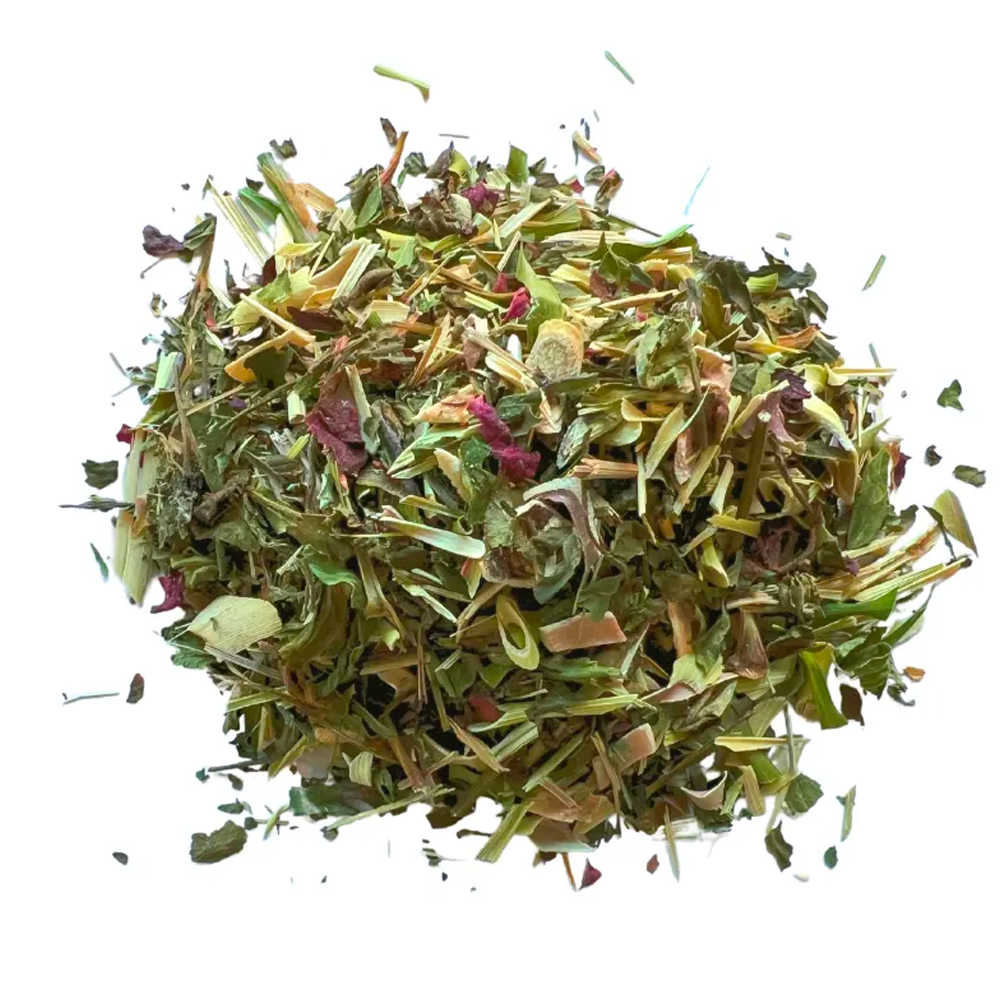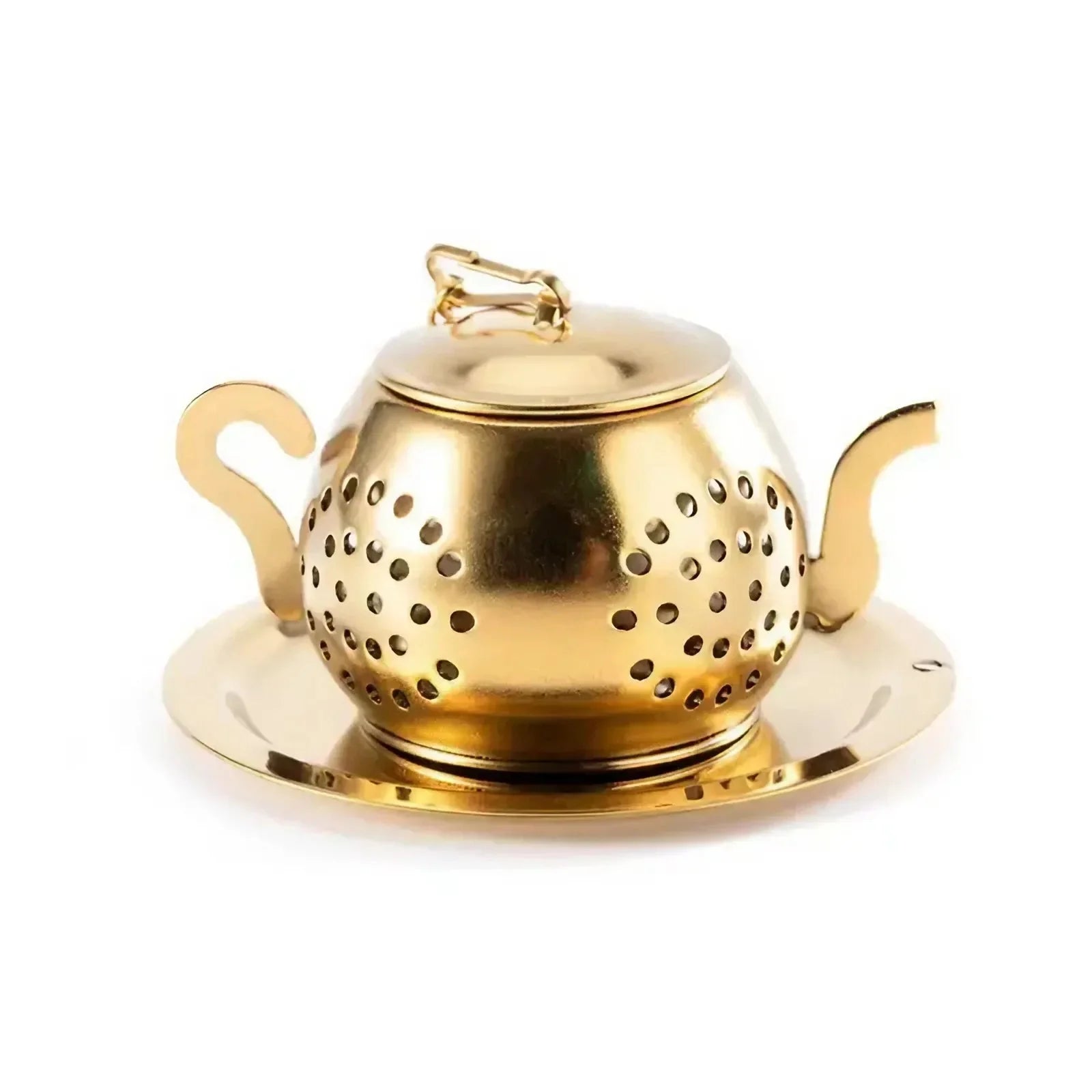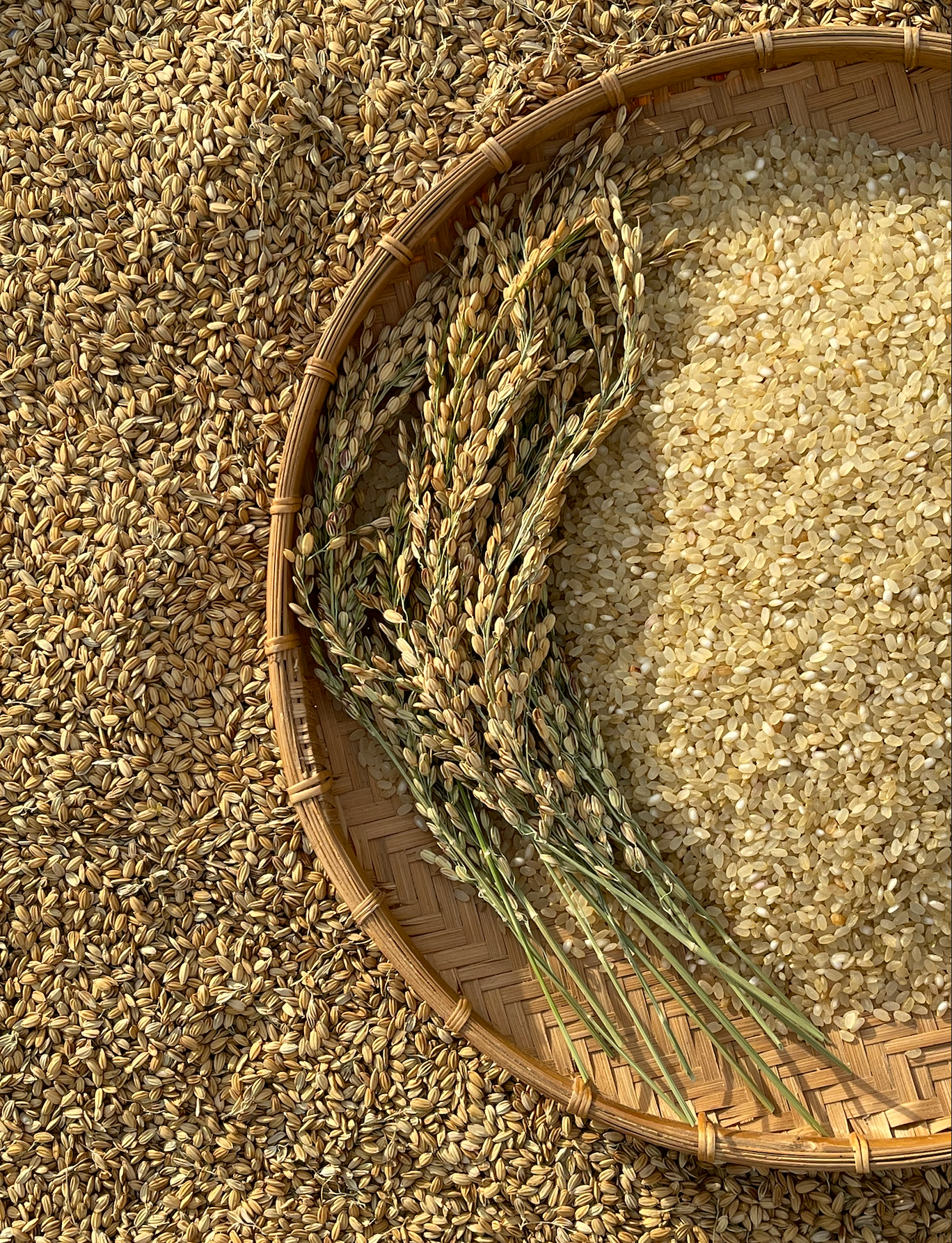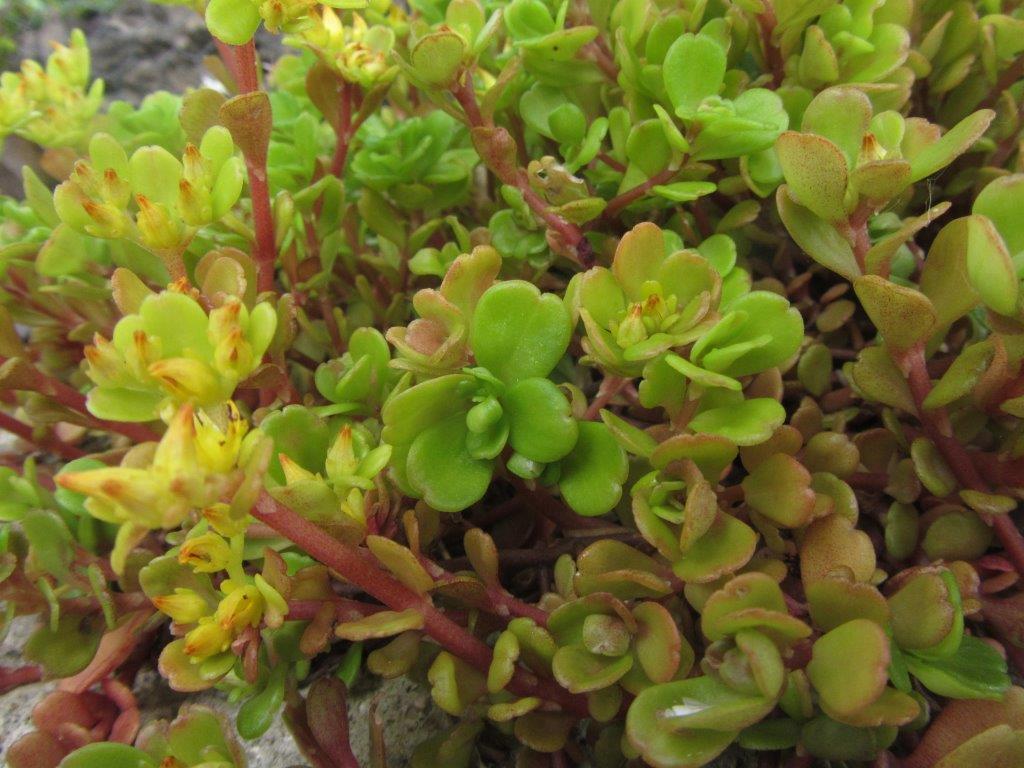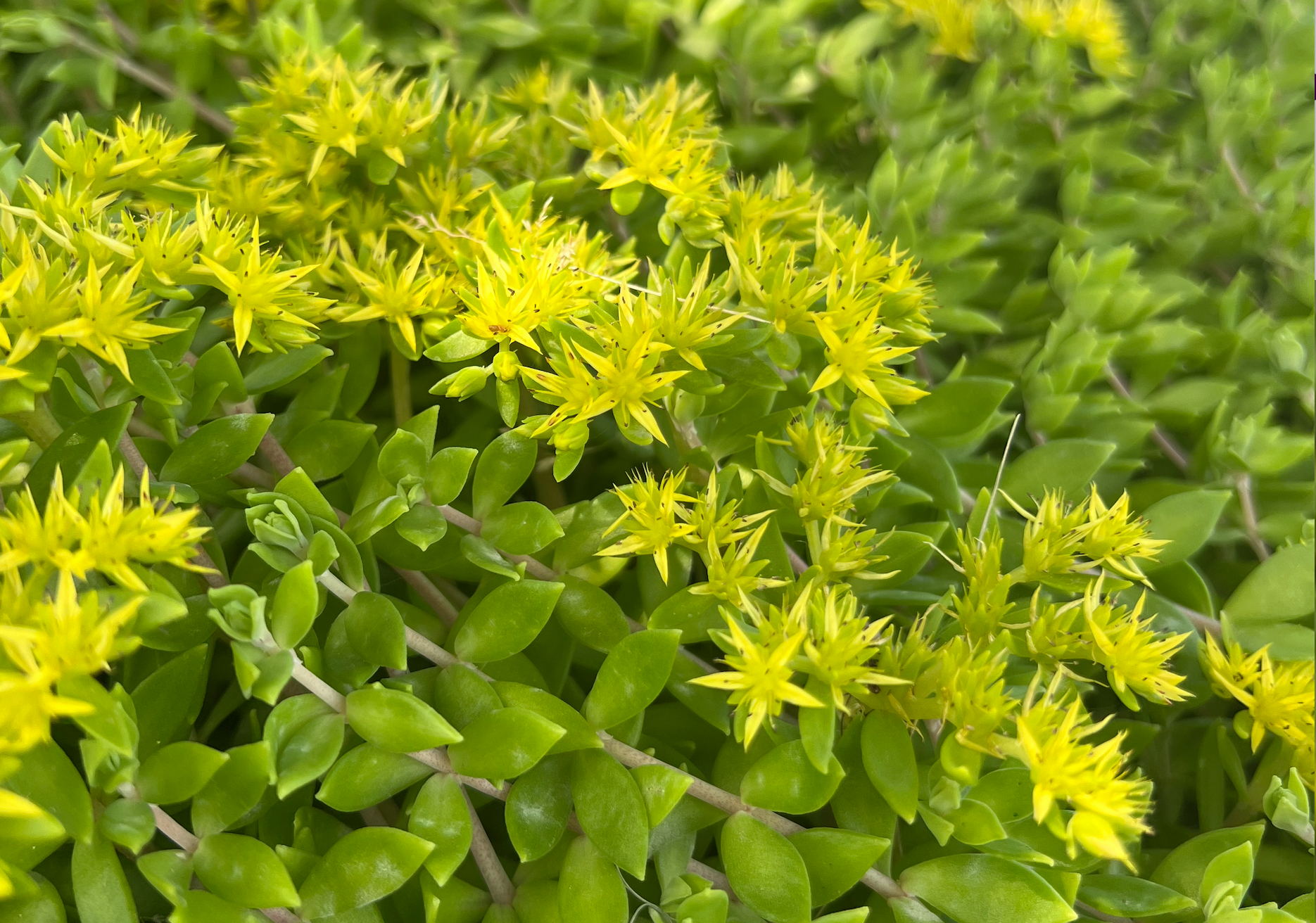The Winter Harvest (our very first blend from our Classic Harvest Collection) is finally here. As you may already know, Hmong Chicken herbs (tshuaj rau qaib) are known for their remarkable versatility. It is possible to create a delicious soup by utilizing any combination or amount of herbs that you have on hand. In a traditional Hmong chicken herb soup, typical herbs includes: Lemongrass (Tauj Dub), Pei Lan (Ntiv), Mugwort (Suv Nstim), White Mugwort (Ko Taws Ob Liab), along with any other herbs you have readily available. However, even with a limited herb selection, as long as you have a variation of these four herbs mentioned above, your soup will still taste excellent. Our Winter Harvest blend comprises the four common herbs, along with two thoughtfully chosen herbs: Lemon Verbena (tauj dub ntoo) and Sweet Flag (Paw Qaib).
- Lemongrass (Cymbopogon citratus), is a tall perennial grass that hails from the tropical regions of Asia, specifically India and Sri Lanka. This herb thrives best in warm, tropical climates with plenty of sunlight and well-drained soil, although it is typically grown as an annual plant in colder regions. Apart from its culinary uses, lemongrass has been utilized in traditional medicine to treat various ailments such as digestive issues, respiratory problems, and fever.
- Pei lan (fortune eupatorium) is a perennial plant native to East Asia that is highly valued in Traditional Chinese Medicine (TCM). The aerial parts of the plant, including the stems, leaves, and flowers, are dried and used in various formulations such as teas and tinctures. Pei lan has a bitter and pungent taste and is known for its cooling properties, which can help reduce fever and clear heat. It is also used to promote urination and relieve edema, making it beneficial for treating conditions like urinary tract infections and kidney stones. In addition, pei lan is believed to alleviate pain in the chest and abdominal areas and regulate the flow of qi in the body, making it a useful treatment for bloating, constipation, and indigestion.
- Mugwort (Artemisia vulgaris) is a versatile herbaceous plant native to Europe and Asia. Mugwort grows best in temperate to subarctic climates and prefers full sun and well-drained soil, although it can tolerate some shade. Traditional Chinese and Japanese herbal medicine have long used Mugwort, where it is believed to have a range of health benefits, including relief of digestive issues, menstrual cramps, and anxiety, as well as improving circulation and promoting relaxation. Mugwort has a slightly sweet and bitter taste and is also used as a culinary herb in some cultures, particularly in Korea, where it flavors dishes such as soups and pancakes.
- White Mugwort (Artemisia lactiflora), is originally from East Asia, including China, Korea, and Japan. Artemisia lactiflora prefers temperate to sub-tropical climates and can grow in a range of soil types, as long as it is well-drained and receives full to partial sunlight. In traditional Chinese medicine, Artemisia lactiflora has been used for centuries to treat various ailments, such as fever, arthritis, and menstrual disorders. It is believed to have anti-inflammatory, antipyretic, and analgesic properties, among others.
- Lemon verbena, also known as lemon beebrush or lemon-scented verbena, is a perennial shrub belonging to the Verbenaceae family. The plant is highly versatile and can be used to add a lemony flavor to a range of dishes, including desserts and teas. In traditional medicine, lemon verbena has been used to treat a variety of ailments, such as digestive issues, anxiety, and inflammation. Lemon verbena thrives in a warm, sunny climate with well-drained soil. It is sensitive to frost and cold temperatures, but with delicate care, it can be preserved during the winter. Lemon verbena is packed with vitamin A and C, both of which are antioxidants that can help protect the immune system and support overall health, which is essential during the colder season.
- Sweet flag (Acorus gramineus) is a hardy perennial herb that thrives in wetlands and marshes across the globe, from Asia and Europe to North America. This versatile plant can adapt to a wide range of temperatures, making it a popular choice for cultivation in both tropical and cold climates. The rhizomes, or underground stems, of the plant require several years to mature. Due to its resilience in colder temperatures, it was carefully selected as a key ingredient in the Winter Harvest. Sweet flag has a long history of use in traditional medicine, with applications ranging from treating digestive issues and respiratory disorders to enhancing memory and cognitive function. It is also prized for its diverse pharmacological activities, including anti-inflammatory, antimicrobial, and analgesic effects.
The Winter Harvest is a well-crafted blend of six herbs, each carefully selected for their unique properties that collectively provide a comforting and healthful experience. The herbs in this blend are rich in antioxidants and have anti-inflammatory effects, making it an excellent choice for boosting immunity and supporting healthy digestion. For more information on each of the ingredients in our herbal blends, please visit our website here.

